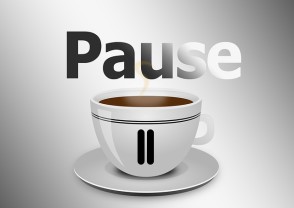How to Strategically Plan Deposition Breaks
 What is the longest deposition you have been in? How many breaks did you take during that deposition? Did you plan for those breaks before you started the deposition?
What is the longest deposition you have been in? How many breaks did you take during that deposition? Did you plan for those breaks before you started the deposition?
This post focuses on what happens during the downtime (breaks) in a deposition and how to be strategic about them. When you’re on a break or otherwise “off the record” then the defending attorney potentially has the ability to confer with the witness.
Scenario One – The Witness Is Not A Party
In the case when a witness is not a party to the deposition, then discussions between a party’s lawyer and the witness are generally discoverable. In that case, the defending attorney should tread lightly in consulting with the witness because any discussions between the defending attorney and the witness are fair game for questioning. Of course, that general statement is subject to many qualifications. For example, former employees of a client corporation may be covered by privilege.
Scenario Two – The Witness Is A Party
Discussions between a lawyer and his or her client will generally be privileged. However, there are notable exceptions notably during mid-deposition conferences. There are several cases that limit the scope of off-the-record conferences between a lawyer and the deponent, regardless of whether the deponent is a party. See this post discussing Hall v. Clifton Precision, a Federal opinion, and this post discussion Illinois law on the subject.
As you can see, the law in the area of mid-deposition conferences is murky and varies depending on your jurisdiction. Many jurisdictions likely don’t have settled law on the issue. In jurisdictions with unsettled law, lawyers can do what they do best: litigate. They can write memos, research the law, draft clever briefs, and generally spend a bunch of time, and, more importantly their clients’ money, arguing over whether a mid-deposition conference is permissible or discoverable.
And, even if you win after many hours of arguments that the mid-deposition discussion is discoverable it’s not likely that the witness will be hugely willing to spill the beans about what was said. You’ll probably get truncated answers at best. Don’t expect a perfect recitation from the witness about how their lawyer coached them to respond to your questions.
So what to do?
My advice is to do your best to avoid the issue altogether. There will be some defending lawyers who attempt to break your rhythm and ask to take breaks for quick prep sessions rather than legitimate (e.g. biological) reasons. In those cases you may have no choice than to litigate the issue. But in most cases you can avoid the issue.
To avoid the issue you need to plan. First, assume that you will need to take a bathroom break at least twice in addition to a lunch break. Certain witnesses may have other medical issues or needs that may necessitate additional breaks. Do your best to figure this out quickly so you can plan accordingly. You don’t necessarily need to ask them about their personal issues to know what they might need. If you see, for example, a witness drinking a lot of water (which is not uncommon when they’re nervous) then they’ll probably want additional bathroom breaks.
Second, plan your questions that cover important issues strategically – don’t straddle a break, particularly a lunch break or a break overnight. If you’re about to cover an important topic, try taking a break right before you start so the witness and defining lawyer won’t have any good excuse for another break 10 minutes later when you’re skewering the witness.
Ultimately, you can’t control when breaks are taken or if the defending lawyer will attempt to use the break for coaching the witness. But if you’re aware of the possibility and you try to time your questions and breaks appropriately, you might be able to avoid the issue altogether, which will save you and your client many hours and thousands of dollars in arguments about mid-deposition coaching by the opposing counsel.

Comments
It is interesting to know how this type of thing works. Depositions breaks seem like they would be vitally helpful, so it is important to know where and when they are an option. I will look into my own jurisdiction and see if I can figure out whether they have settle law on this issue like you said. Thank you for all of the helpful information!
Leave a Reply